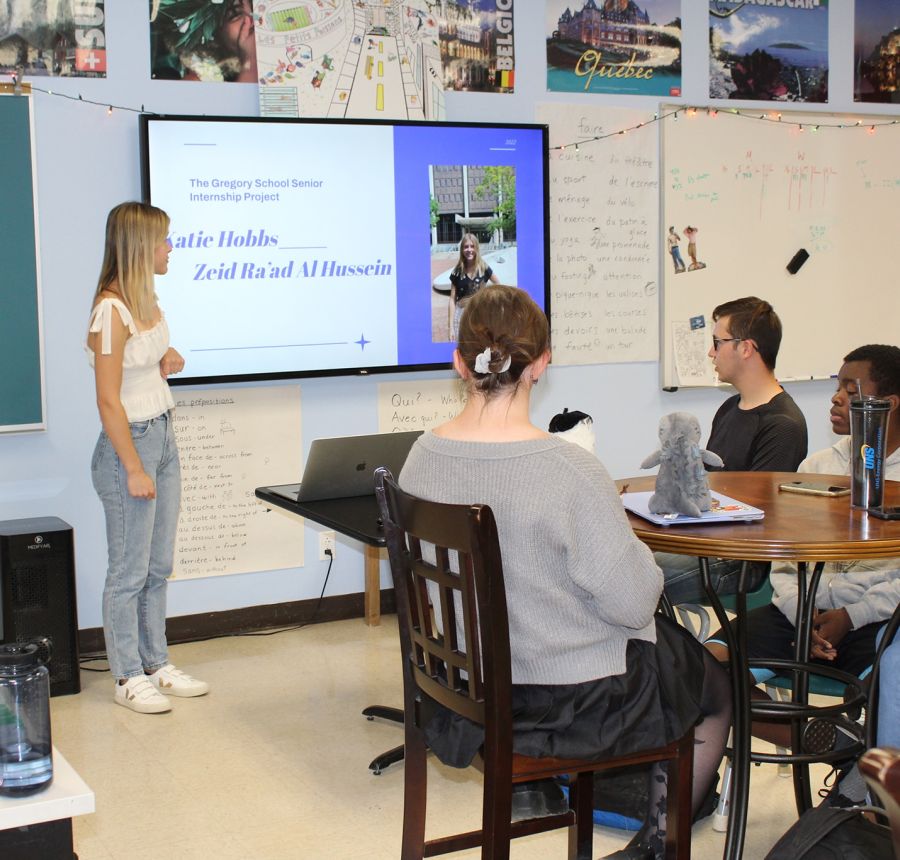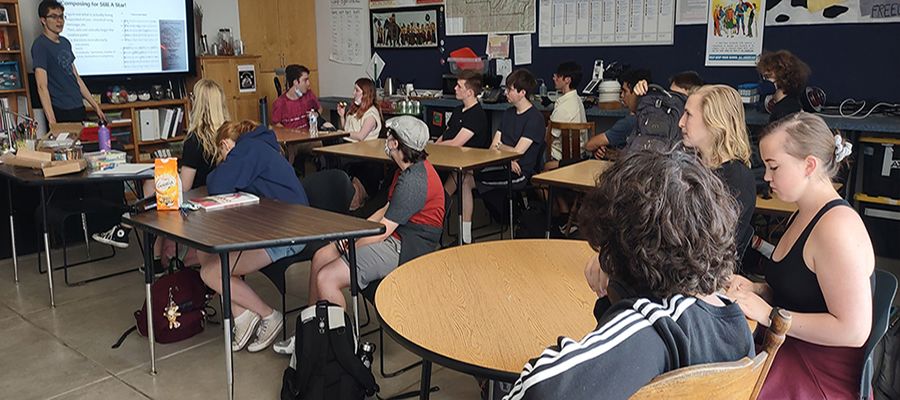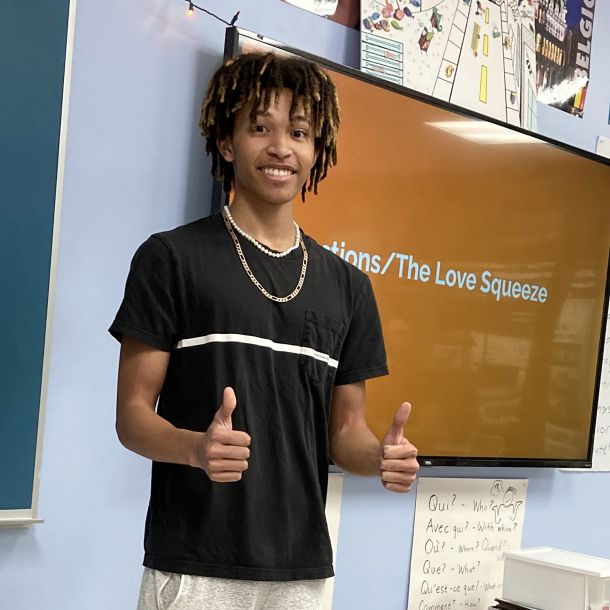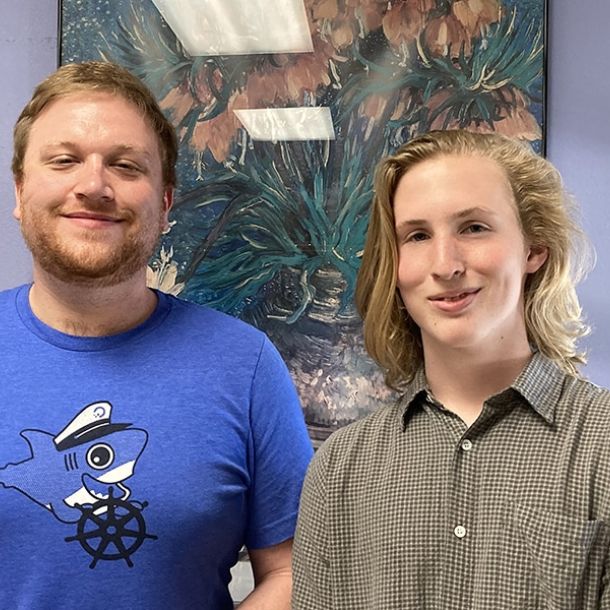



Students apply knowledge and grow through Senior Internship Program
The Tucson Botanical Gardens, Sheriff’s Department forensics, veterinary clinics, choreography, the mayor’s office, finance, youth basketball. These are but a few of the fields and organizations in which members of our class of 2022 completed their senior internships.
In addition to fulfilling the required number and distribution of course credits, Gregory School students also complete a 60-hour senior internship. “The Senior Internship Program provides our seniors with multiple benefits,” Dean of Upper School Student Affairs and Director of College Counseling, Mrs. Michelle Borleske said. “Seniors have this unique opportunity to develop and implement what can be seen as a capstone project to their upper school experience.” Among the many benefits our internship program offers seniors are the opportunities to enhance and apply the knowledge and skills they have developed during their time at TGS and to experience possible career paths.
Senior Skye Paulus’s internship afforded her both of these. Working remotely, with some trips for in-person meetings, Skye was part of a team with Professor Zeid Ra’ad Al Hussein, a former Jordanian diplomat, former UN High Commissioner for Human Rights, a professor of the practice of law and human rights at the University of Pennsylvania, and President and CEO of the International Peace Institute, working to create an index that ranks global leaders by their human rights intentions.
“In the Entrepreneurial Institute (a Gregory School class our juniors and seniors may apply to be in), I learned about working with and marketing a tangible product. Through the internship, I learned more about how you create and sell a service.” Beyond applying what she had learned at school, the internship helped Skye broaden her career interests. “I knew about big law and big finance. Now I know how those can be paired with human rights, and I’m seeing it make a difference,” she said.
The internship program is also designed to give students a better understanding of themselves. “We ask the seniors to think about their interests, skill sets, and curiosities, and with the guidance of their assigned faculty mentors, bring their internship idea to fruition. Through this process, seniors develop professional and personal skills through tasks which often challenge them well beyond their comfort zones,” Mrs. Borleske said.
This was the case for Belle Harrison ‘22 who, working with MaxLove Connect, wrote essays that captured her stories and the coping mechanisms she used as a childhood cancer survivor. MaxLove Connect will use the essays to help support children and families going through childhood cancer. Belle explained that before she started to write, it felt daunting. “I thought, ‘How do I do this?’” she said. “I thought I’d never have to pull it all out again.” But she proceeded and learned about herself from the experience. “The writing taught me how to be vulnerable and it taught me that I can use my experience to help others. I learned the power of telling my story,” she said.
The senior internship follows a specific timeline, beginning in summer to early fall of their senior year, with students identifying an area of interest and contacting organizations to create an internship opportunity. Students then write an internship proposal and submit it to the faculty internship committee. Once approved, students complete and document at least 60 internship hours by early spring. Internships culminate in a student-created portfolio and internship presentation before peers, faculty and, when possible, their internship mentor from the organization they worked with.
Mrs. Borleske cites the Senior Internship Program as often a focal point for seniors during the college application process, especially as they write their essays. “Seniors can speak to specific hands-on experiences learned during the internship, or can reflect upon their experiences when asked to share a story about a time when they were challenged or address what major they're pursuing and why they're interested in that field of study,” she said. “Upon completion of their 60+ hours of internship work and presentation to their faculty and peers, our seniors have gained confidence that will benefit and uplift them well beyond graduation."